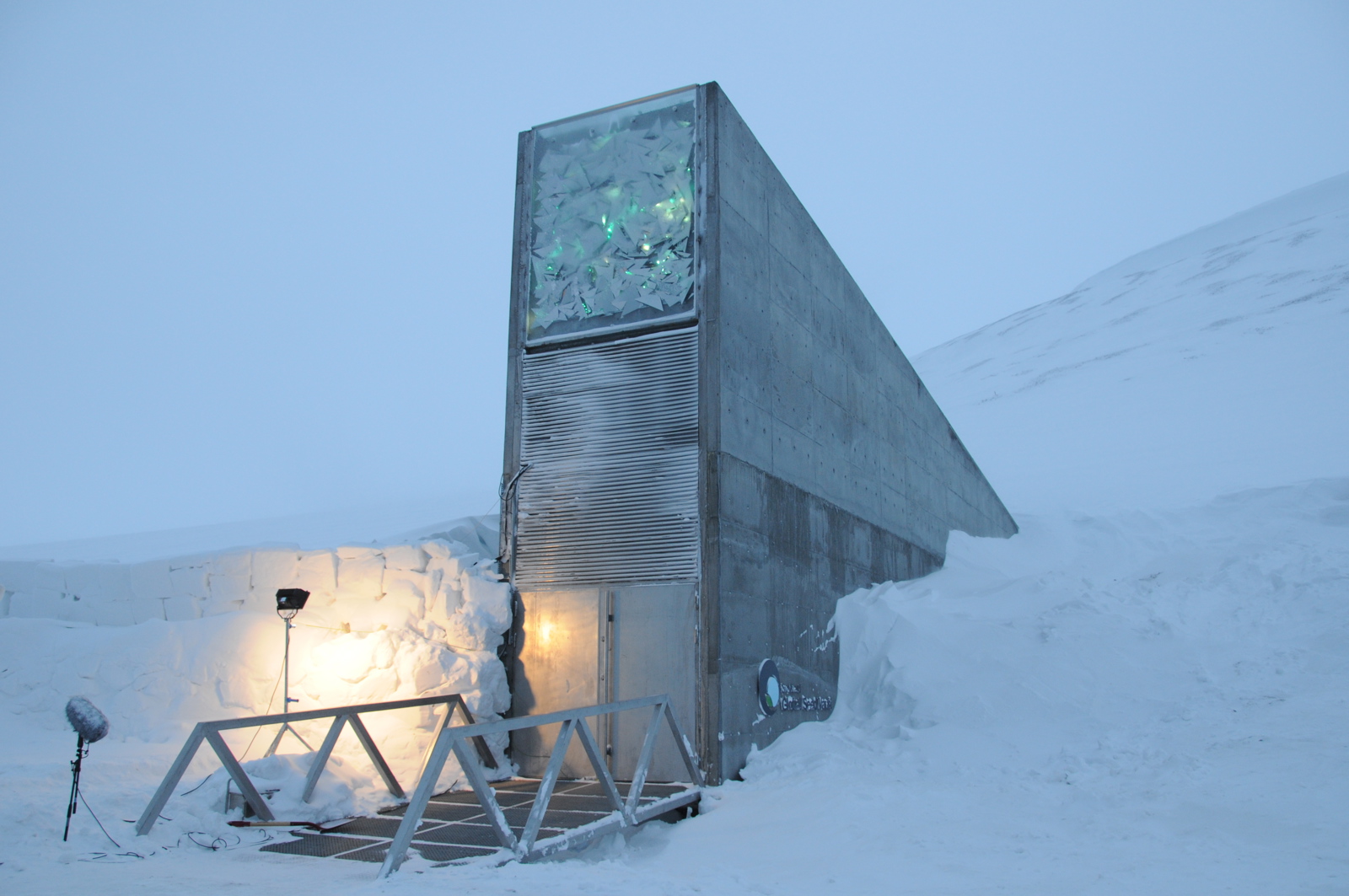800 miles from the Arctic Circle is The Svalbard Global
Seed Vault, a Norwegian-run facility. Here, it stores 860,000 seed samples from
across the globe “[providing] a “global backstop” for the world’s biodiversity in
the face of climate change and other dramatic transformation on the planet”
(The Washington Post).
The International Center of Agriculture Ministry in Dry Areas (ICARDA) recently closed down the original base in Aleppo, Syria due to the Syrian Civil War and ISIS control, and moved to Beirut, Lebanon.
With the reestablishment complete, ICARDA has asked to
open the vault for the first withdrawal ever in order to restart their
collection. In doing so, they will be taking out 130 of their 325 samples, 40%
percent of their original deposit, most of them with drought resistant traits.
With the creation of the vault only in 2008, is it
justified that Syria is able to tap into this international resource?
According to Crop Trust, the organization responsible for
the vault, “The Black Box System entails that the depositor is the only one
that can withdraw the seeds and open the boxes.” With California’s severe
drought in mind, is it viable to have some kind of trading system that would
allow countries to exchange crops with needed traits?
Sources:
https://www.croptrust.org/what-we-do/svalbard-global-seed-vault/
http://news.nationalgeographic.com/2015/09/150923-svalbard-doomsday-arctic-seed-vault-syrian-crisis-pictures/
https://www.washingtonpost.com/news/worldviews/wp/2015/09/22/arctic-doomsday-vault-opened-because-of-syrian-civil-war/
http://www.icarda.org/
http://www.reuters.com/article/2015/09/21/us-mideast-crisis-seeds-idUSKCN0RL1KA20150921

2 comments:
I think that it is justified that Syria tap in to this tremendous resource. If I am not mistaken, the seed vault has the capacity to store over 4 million samples ( each sample has hundreds of seeds). The purpose of the seed vault was so countries could "start over" in the event of a major catastrophe, like global drought, nuclear war, etc.... With that said, I would be interested to know WHEN Syria plans to take out more seed samples. There are two reasons why Syria has food problems. The first reason is that there was a period of massive crop failure in the region right before the civil war started. OK...drought tolerant seeds can help with that if it were to happen in the future, good. Then comes the second problem: the wars in Syria. Not only is the Assad regime grappling with the different rebel groups fighting to oust him, but ISIS is now raging across the region, killing people, disrupting life, and causing more chaos. In the midst of all of this fighting, is NOW really the best time for farmers to try and start over? With all of the fighting and infrastructure damage that is the status quo, is NOW the most optimal time to cash in that valuable resource that Syria has. That's not for me to say; I am no expert, but that is still something to think about. This also brings up the point of how people in Syria will be able to get food. If they can't farm, can we expect them to rely solely on foreign aid? Is that economically practical? Just my reaction to this article...good job. Very interesting
I think that Nick brings up some very interesting points. Obviously, Syria is able to make a withdrawal from the vault; however, I do not think now is the best time to do so. I think that it would be better to stabilize the country first before trying rebuild the agriculture. Since the vault was only created in 2008, I think now might be a bit too soon to withdraw samples from the vault as it has only been seven years. The "Doomsday" vault gives the impression that it is supposed to be used when there is almost absolutely no hope and resources left. Therefore, if Syria were to withdraw samples from the vault, would the replace them? And if it were possible to replace them, why not just use those to serve the same purpose instead of taking out resources specifically meant for desperate use in the future?
Post a Comment